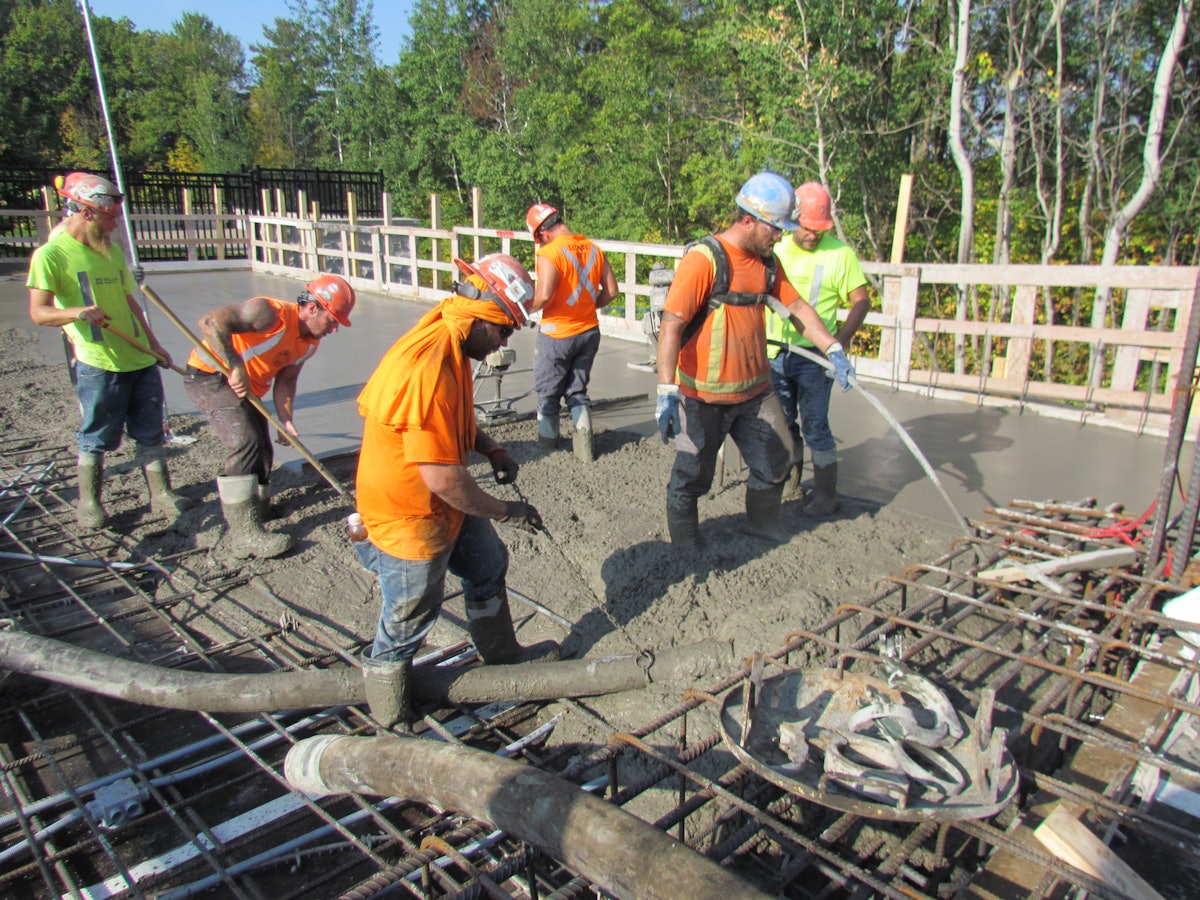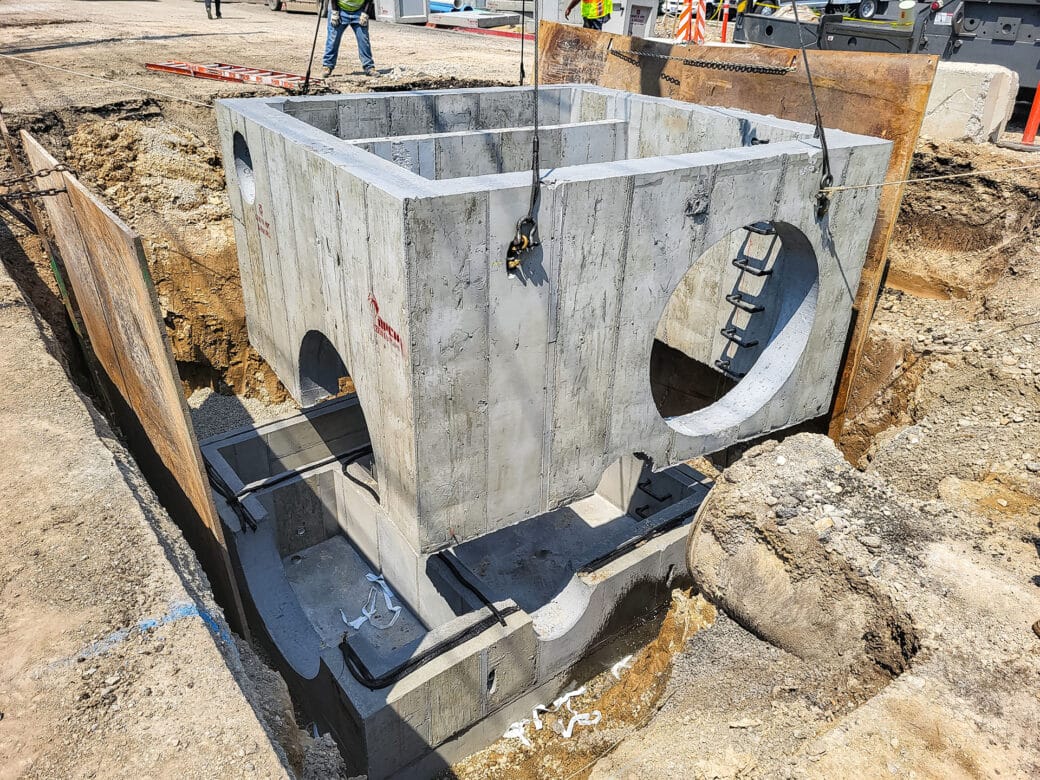West Coast General Engineering concrete foundation: Step-by-Step Guide for Long-Term Structural Success
West Coast General Engineering concrete foundation: Step-by-Step Guide for Long-Term Structural Success
Blog Article
The Important Duty of Concrete Structure in Structural Stability and Longevity
When it pertains to constructing a home, the foundation is much more vital than you could believe. Concrete foundations provide unparalleled strength and longevity, guaranteeing your structure can stand up to various environmental difficulties. Without a solid base, you risk prospective issues like shifting or cracking, which can compromise security and value. Comprehending the subtleties of concrete structures can be the trick to maintaining your financial investment for several years to find. So, what should you think about next?
Recognizing the Relevance of Concrete Foundations
Concrete structures are essential to the general stability of any structure, as they supply the crucial assistance required to stand up to different lots and environmental conditions. When you think of constructing a home or a business room, the structure is the initial thing you ought to take into consideration. It works as a barrier versus dampness, safeguarding your residential or commercial property from water damage. A well-placed concrete foundation also stops settling and shifting, which can bring about cracks in wall surfaces and floors. You'll want to ensure that the structure is appropriately created and strengthened, as this impacts the long life of your structure. In addition, a solid foundation can boost power effectiveness by reducing air leaks. Keep in mind, overlooking the value of a concrete structure can lead to expensive repairs down the line. Spending in a quality structure upfront is necessary for the integrity and toughness of your structure.
Benefits of Concrete Foundations for Structural Honesty
While several aspects contribute to a building's architectural stability, concrete structures use unequaled longevity and toughness. You'll value that concrete can endure extreme weather, standing up to both wetness and temperature changes. This strength means your structure is less most likely to experience breaking or shifting with time, which can compromise its safety.Additionally, concrete's inherent weight offers a strong base, preventing activity during natural occasions like quakes or floodings. When you choose a concrete structure, you're additionally opting for low upkeep; unlike wood, it will not rot or attract pests, conserving you money and time in repairs.Moreover, concrete's fire resistance uses included safety and security, ensuring your framework can sustain high temperature levels without considerable damage. On the whole, investing in a concrete structure indicates you're prioritizing the lasting stability and stability of your structure, making it a wise option for any kind of building task.
Typical Sorts Of Concrete Foundations
When it comes to building foundations, comprehending the usual kinds of concrete structures can assist you make notified choices for your job. One of the most widespread kinds consist of slab-on-grade, crawl space, and full cellar foundations.A slab-on-grade structure is a simple, cost-effective option, where a thick concrete piece is poured straight on the ground. This type functions well in cozy environments, as it minimizes warm loss.Crawl space structures raise the home a little over ground, enabling for ventilation and access to pipes and electrical systems. This design can help avoid moisture issues.Full basement structures provide extra living or storage area while giving outstanding architectural assistance. They require more excavation and are normally utilized in cooler climates to stop frost heave.
Factors to Take Into Consideration When Creating a Concrete Foundation

Finest Practices for Putting Up Concrete Foundations
When you're setting up a concrete structure, proper website preparation is vital to assure stability (West Coast GE Concrete contractors). You'll likewise need to recognize support methods to boost toughness and toughness. Don't neglect the curing procedure, as it plays an essential role in achieving a strong structure.
Website Preparation Relevance
It might seem simple, correct site prep work is crucial for ensuring a strong and durable concrete foundation. Start by getting rid of the location of any debris, plant life, or organic material that might jeopardize the foundation's honesty. Next, examine the dirt kind and compaction; you could need to dig deep into or include products to develop a stable base. Level the ground to guarantee even weight circulation and stay clear of settling issues later. Mounting appropriate drainage systems is likewise necessary to protect against water build-up, which can deteriorate the structure in time. Mark out the structure's dimensions precisely to lead the pouring process. By complying with these steps, you'll set the stage for an effective concrete foundation that stands the test of time.
Support Methods Explained
Once the site is properly prepared, the following action in guaranteeing a durable concrete structure includes applying reliable support strategies. You should begin by utilizing steel rebar, which gives tensile toughness and aids avoid breaking. Lay the rebar in a grid pattern, ensuring it rises making use of spacers to preserve proper protection. In addition, think about using cable mesh for added support, specifically in locations subject to heavy loads. Don't fail to remember to tie the rebar junctions safely with cord. For larger foundations, fiber support can boost resilience, minimizing the risk of contraction fractures. Constantly follow local building ordinance and standards to ensure compliance. By applying these support methods, you'll substantially improve your foundation's stamina and longevity, laying a strong foundation for your framework.
Treating Refine Fundamentals
To assure your concrete foundation cures appropriately, it's vital to keep ample dampness and temperature level conditions promptly after pouring. Beginning by covering the surface with a damp cloth or plastic sheet to maintain dampness. This maintains the concrete hydrated, protecting against fractures and making certain strength. You ought to additionally keep an eye on the temperature level; suitable healing conditions are between 50 ° F and 90 ° F. If it's also warm, mist the surface area regularly to avoid quick evaporation. For chilly weather, think about making use of protecting blankets to keep heat. Go for a healing duration of at the very least seven days, as this is crucial for optimum toughness growth. By adhering to these ideal practices, you'll enhance your foundation's sturdiness and durability, making sure architectural stability for several years to come.
Upkeep of Concrete Foundations for Durability
To maintain your concrete structure solid and lasting, regular inspections are crucial. You need to additionally ensure effective water drainage options are in area to stop water damage. If you identify any type of fractures, addressing them without delay will save you from larger issues down the line.

Normal Evaluations and Assessments
While regular inspections and assessments may appear like a task, they're vital for keeping the stability of your concrete foundation. By regularly examining for fractures, changes, or indicators of wear, you can view website capture possible concerns prior to they escalate into pricey repairs. Look for any type of water merging around the structure or unusual settling, as these can signify underlying problems. It's additionally a good idea to keep track of any type of adjustments in your house's framework, like doors that stick or home windows that do not open efficiently. Keeping a record of your inspections aids track changes with time, enabling proactive upkeep. Eventually, these assessments assure your foundation remains steady, sustaining the durability and safety and security of your entire structure. Do not ignore this essential aspect of homeownership!
Effective Drainage Solutions
Routine assessments can disclose issues like water drainage troubles that could compromise your concrete structure's stability. To protect against water accumulation, guarantee your seamless gutters and downspouts direct water far from the structure. Installing French drains pipes can effectively redirect surface area and groundwater, decreasing pressure on your foundation walls. Furthermore, grading the soil around your home assists guarantee that water streams away, as opposed to pooling near your foundation.Consider utilizing sump pumps in areas susceptible to flooding, as they actively eliminate excess water. On a regular basis look for obstructions in drain systems and clear them immediately. You'll protect your structure's honesty and durability by taking these proactive procedures. Bear in mind, efficient drainage options are important for keeping a solid, long lasting concrete foundation.
Motivate Crack Repairs
When you see fractures in your concrete foundation, resolving them quickly is vital for preserving its long life. Small splits can rapidly advance right into bigger problems, compromising the architectural honesty of your home. Frequently evaluate your foundation for indications of damage, such as horizontal or vertical cracks. If you identify any type of, don't wait-- repair them quickly. You can use epoxy shots or concrete patching compounds, which work for securing fractures. Always comply with the maker's guidelines and take into consideration seeking advice from an expert for significant damage. Bear in mind, prompt repairs not just improve your structure's durability yet also conserve you cash in the future by avoiding a lot more comprehensive repairs down the line. Stay proactive, and your foundation will continue to be solid and safe.
Addressing Common Issues With Concrete Foundations
Concrete foundations can deal with numerous issues in time, making it important to identify and address them quickly. One of the most usual issues is breaking, which can occur because of temperature level fluctuations or resolving dirt. If you notice cracks, it's necessary to analyze their dimension and deepness; small cracks can frequently be secured, while bigger ones may call for professional evaluation.Water breach is one more significant problem. Excess dampness can cause mold growth and architectural degeneration. Warranty correct drain around your foundation to alleviate this threat. In addition, try to find indicators of changing or bowing walls, as this navigate here can indicate underlying concerns with your foundation's stability.Regular inspections are essential to capture these issues early. If you spot any type of worrying signs, don't wait to get in touch with a foundation professional. By remaining positive, you can keep the stability and durability of your concrete foundation, guaranteeing your home remains secure and secure.
Frequently Asked Inquiries
How Does Dirt Type Influence Concrete Foundation Performance?
Soil kind substantially affects concrete foundation efficiency. If you've got expansive clay, for circumstances, it can see create changing and fracturing. Sandy soil could result in settling. Understanding your dirt aids guarantee a steady structure.
Can Concrete Foundations Be Repaired if Damaged?
Yes, you can fix damaged concrete structures. Depending upon the level of the damages, strategies like epoxy injection or slab jacking can recover security. It's finest to seek advice from a professional for effective services.
What Is the Regular Life-span of a Concrete Structure?
A concrete foundation usually lasts 30 to 100 years, relying on elements like soil problems, environment, and maintenance. You'll intend to watch on it to guarantee it continues to be in great form throughout its lifespan.
Are There Option Materials to Concrete for Foundations?
Yes, there are choices to concrete for foundations, like steel, lumber, or even recycled materials. Each alternative has distinct benefits and drawbacks, so you need to consider your job's particular requirements when picking the right material.
How Does Climate Effect Concrete Structure Toughness?
Climate substantially affects concrete structure sturdiness (West Coast GE Concrete contractors). Extreme temperatures, wetness, and freeze-thaw cycles can compromise the product, leading to splits and structural issues. You should think about neighborhood climate conditions when planning your structure to ensure lasting performance
Report this page